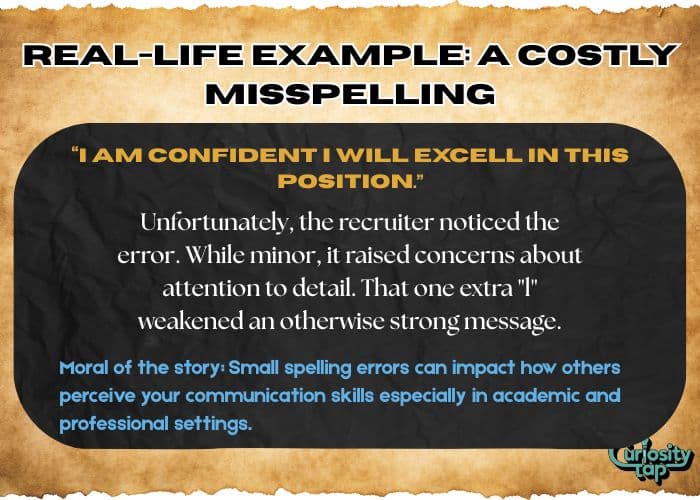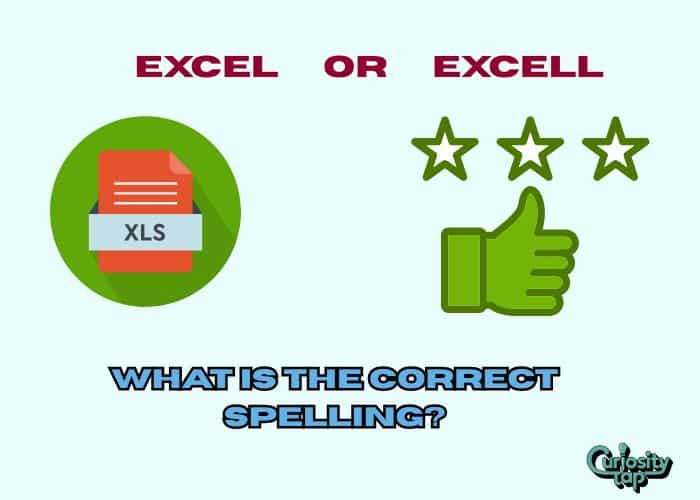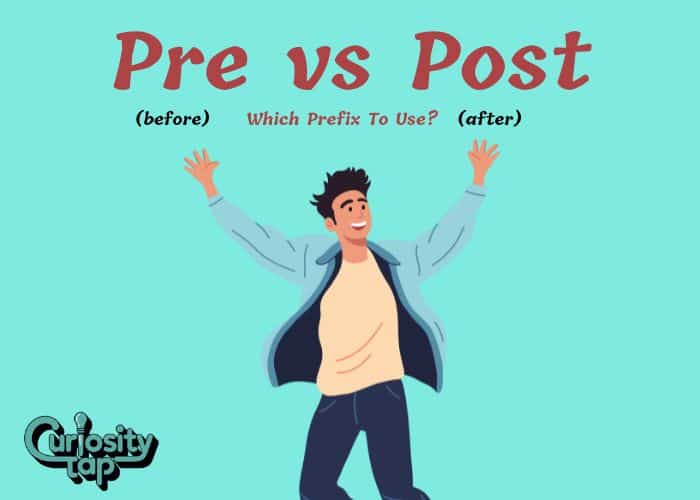Every writer, student, or professional has stumbled over spelling at some point especially when two versions seem equally plausible.
One such confusion is Excel vs. Excell. You’ve probably typed “Excell” in a hurry, only to have it flagged by spellcheck.
But is “Excell” ever correct? And why is this mistake so common?
In this guide, we’ll clarify the correct spelling, show how to use it confidently, and uncover the subtle reasons why even seasoned writers make this error.
Why “Excel” is the Correct Spelling
Understanding the Word “Excel”
The word excel (verb) means to be exceptionally good at something. For example:
“She excels in mathematics.”
It derives from the Latin excellere, meaning to rise, surpass, or be eminent.
- Correct: Excel
- Incorrect: Excell ❌
There is no standard English word spelled “Excell” though it may appear in names or brands.
Why “Excell” Feels Right but Isn’t
Words like “excellent” or “cell” end in -ell, so it’s easy to assume “Excel” might follow the same pattern. But “excel” breaks from that pattern because of its Latin roots and its unique verb usage.
Common Use Cases and Examples
1. Excel as a Verb
When you want to describe someone performing exceptionally:
- ✅ She will excel in her career.
- ❌ She will excell in her career.
2. Excel in Brand Names
Microsoft Excel the famous spreadsheet software uses the same spelling. This widespread tool reinforces the correct version.
💡 Memory Tip: If you’ve ever used Microsoft Excel, you’ve already seen the correct spelling thousands of times.

Real-Life Example: A Costly Misspelling
In a professional email for a job application, a candidate wrote:
“I am confident I will excell in this position.”
Unfortunately, the recruiter noticed the error. While minor, it raised concerns about attention to detail. That one extra “l” weakened an otherwise strong message.
Moral of the story: Small spelling errors can impact how others perceive your communication skills especially in academic and professional settings.
Also Read: Tying or Tieing? Correct Spelling & Grammar Explained
Comparison Table: Excel vs. Excell
| Word | Correct? | Part of Speech | Meaning | Example Sentence |
|---|---|---|---|---|
| Excel | ✅ Yes | Verb | To be very good at something | She wants to excel in her studies. |
| Excell | ❌ No | N/A | Not a valid English word | ❌ “She wants to excell in her studies.” |
Checklist: Never Misspell “Excel” Again
✅ Remember “Excel” has one L
✅ Associate it with Microsoft Excel
✅ Watch for auto-correct (which may not always catch “Excell”)
✅ Use a grammar checker (e.g., Grammarly, Hemingway)
✅ Read important documents aloud to catch errors
FAQs: People Also Ask
Is “Excell” ever a correct spelling?
No, “Excell” is not correct in standard English. It may be used in names or brands, but not as a proper word.
Why do people confuse Excel and Excell?
It’s mostly due to similar words like “excellent” or “cell” which end in -ell, leading to false consistency.
What does “excel” mean in English?
It means to be exceptionally good at or proficient in a skill or field.
Is “Excel” a noun or a verb?
Primarily, it’s a verb. In computing contexts (Microsoft Excel), it’s treated as a noun referring to software.
Are there any exceptions where “Excell” is valid?
Only in proper nouns such as surnames or business names not in general writing or speech.
Pros & Cons of Using Spellcheck Tools
| Pros | Cons |
|---|---|
| Helps identify typos and grammatical errors | Can overlook real-word errors like “Excell” |
| Boosts writing confidence | May create dependency |
| Saves time on proofreading | Doesn’t teach spelling rules |
Conclusion: Master the Spelling, Master the Message
To excel in communication, attention to detail is crucial especially when it comes to something as simple (yet important) as spelling. By remembering the correct spelling and context of excel, you not only avoid embarrassing mistakes but also strengthen your writing credibility.
Sources
Sources:
- Cambridge Dictionary. (2023). Definition of “excel”. https://dictionary.cambridge.org/dictionary/english/excel
- Grammarly Blog. (2023). Commonly Confused Words. https://www.grammarly.com/blog/common-grammar-mistakes/
- Oxford English Dictionary. (2024). Excel – word origin and usage. https://www.oed.com/
Read more knowledgeable blogs on Curiosity Tap
Is this article helpful?

Jackson Pearson is a passionate educator and language enthusiast behind the blog Jackson Pearson. With years of experience in teaching and writing, he specializes in simplifying complex grammar rules, breaking down tricky vocabulary, and crafting learning guides that are both engaging and practical. His mission is to help readers boost their English skills whether they’re beginners or brushing up for fluency. Through every article, Jackson brings clarity, structure, and a spark of curiosity to the world of English learning.



